Myths about teaching can hold you back


- Year 8
Securing understanding of angles from KS2
I can confidently state the sums of the angles around a point and on a straight line.


- Year 8
Securing understanding of angles from KS2
I can confidently state the sums of the angles around a point and on a straight line.
These resources will be removed by end of Summer Term 2025.
Switch to our new teaching resources now - designed by teachers and leading subject experts, and tested in classrooms.
These resources were created for remote use during the pandemic and are not designed for classroom teaching.
Lesson details
Key learning points
- The sum of angles at a point can be used to find missing angles.
- The angle sum of a straight line can be used to find missing angles.
- Vertically opposite angles can be used to find missing angles.
- The size of missing angles can be justified by using known facts.
Keywords
Vertical angles - Vertical angles are pairs of opposite angles formed when two lines intersect at a point. They are equal.
Vertex - A vertex is the point where two or more line segments meet. The plural is vertices.
Similar - Two shapes are similar if the only difference between them is their size. Their side lengths are in the same proportions.
Supplementary angles - Supplementary angles are a pair of angles that sum to 180°.
Conjugate angles - Conjugate angles are a pair of angles that sum to 360°.
Common misconception
Angles on a straight line sum to 180°
Angles on a straight line only sum to 180° if all of those angles share a common vertex. Show two angles "on a line" at different points.
To help you plan your year 8 maths lesson on: Securing understanding of angles from KS2, download all teaching resources for free and adapt to suit your pupils' needs...
To help you plan your year 8 maths lesson on: Securing understanding of angles from KS2, download all teaching resources for free and adapt to suit your pupils' needs.
The starter quiz will activate and check your pupils' prior knowledge, with versions available both with and without answers in PDF format.
We use learning cycles to break down learning into key concepts or ideas linked to the learning outcome. Each learning cycle features explanations with checks for understanding and practice tasks with feedback. All of this is found in our slide decks, ready for you to download and edit. The practice tasks are also available as printable worksheets and some lessons have additional materials with extra material you might need for teaching the lesson.
The assessment exit quiz will test your pupils' understanding of the key learning points.
Our video is a tool for planning, showing how other teachers might teach the lesson, offering helpful tips, modelled explanations and inspiration for your own delivery in the classroom. Plus, you can set it as homework or revision for pupils and keep their learning on track by sharing an online pupil version of this lesson.
Explore more key stage 3 maths lessons from the Geometrical properties: polygons unit, dive into the full secondary maths curriculum, or learn more about lesson planning.

Licence
Prior knowledge starter quiz
6 Questions
Q1.Complete the sentence: The two angles of 44° and 136° are ____________ with each other.
Q2.The size of angle $$a$$ is measured accurately. Which of these statements could be accurate for angle $$a$$?
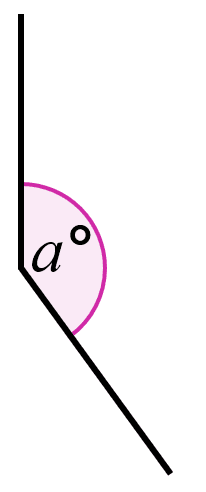
Q3.Match the angle name to its size.
acute -
11.7°
right angle -
90°
obtuse -
117°
reflex -
217°
one full turn -
360°
Q4.Match the pairs of angles to their description.
30° and 60° -
lie on a right angle
45° and 135° -
supplementary angles
120° and 240° -
conjugate angles
120° and 140° -
two random angles
Q5.Which of these statements about this diagram are accurate?
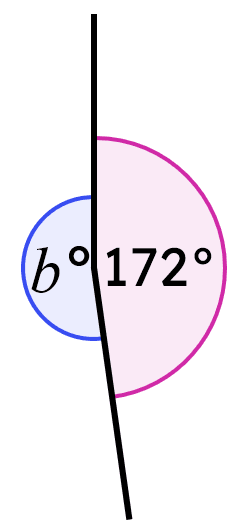
Q6.QR is a line segment. Find the value of $$c+d+g+h$$.

Assessment exit quiz
6 Questions
Q1.TU is a line segment. Angle $$a$$° = °.

Q2.These three angles lie around a point on a full turn. Angle $$b$$° is °.
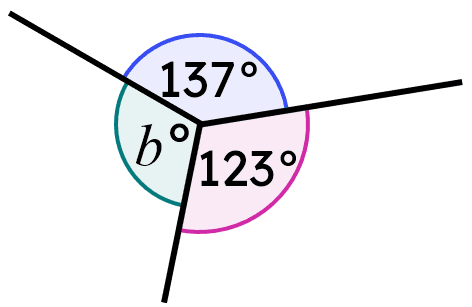
Q3.This diagram shows four angles around two line segments that meet at an intersection. Which of these statements are correct for angle $$c$$°?
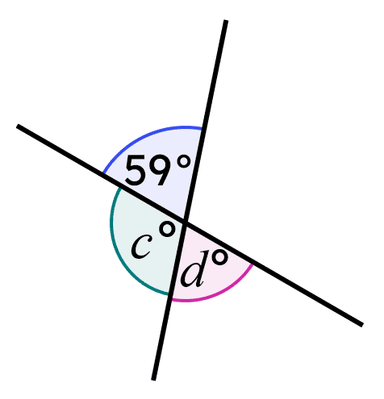
Q4.This diagram shows four angles around two line segments that meet at an intersection. Which of these statements are correct for angle $$d$$?

Q5.PQ and RS are straight line segments. Angle $$e$$° = °.
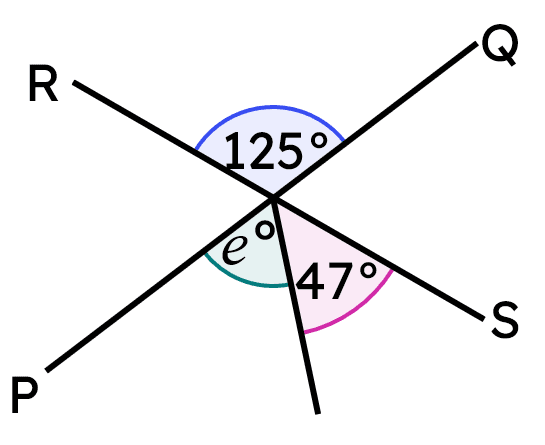
Q6.PQ and RS are straight line segments. Match each angle to its size.
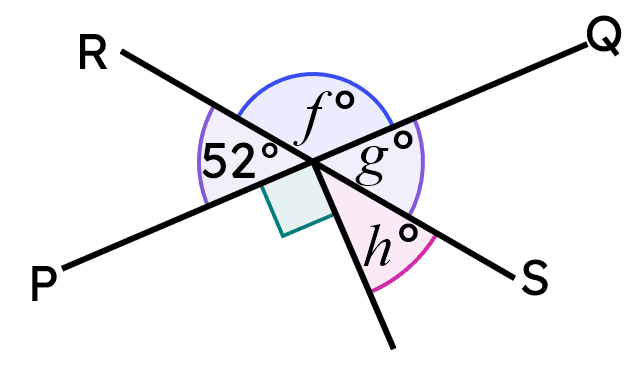
$$f$$° -
128°
$$g$$° -
52°
$$h$$° -
38°
right angle -
90°
not an angle on the diagram -
32°

